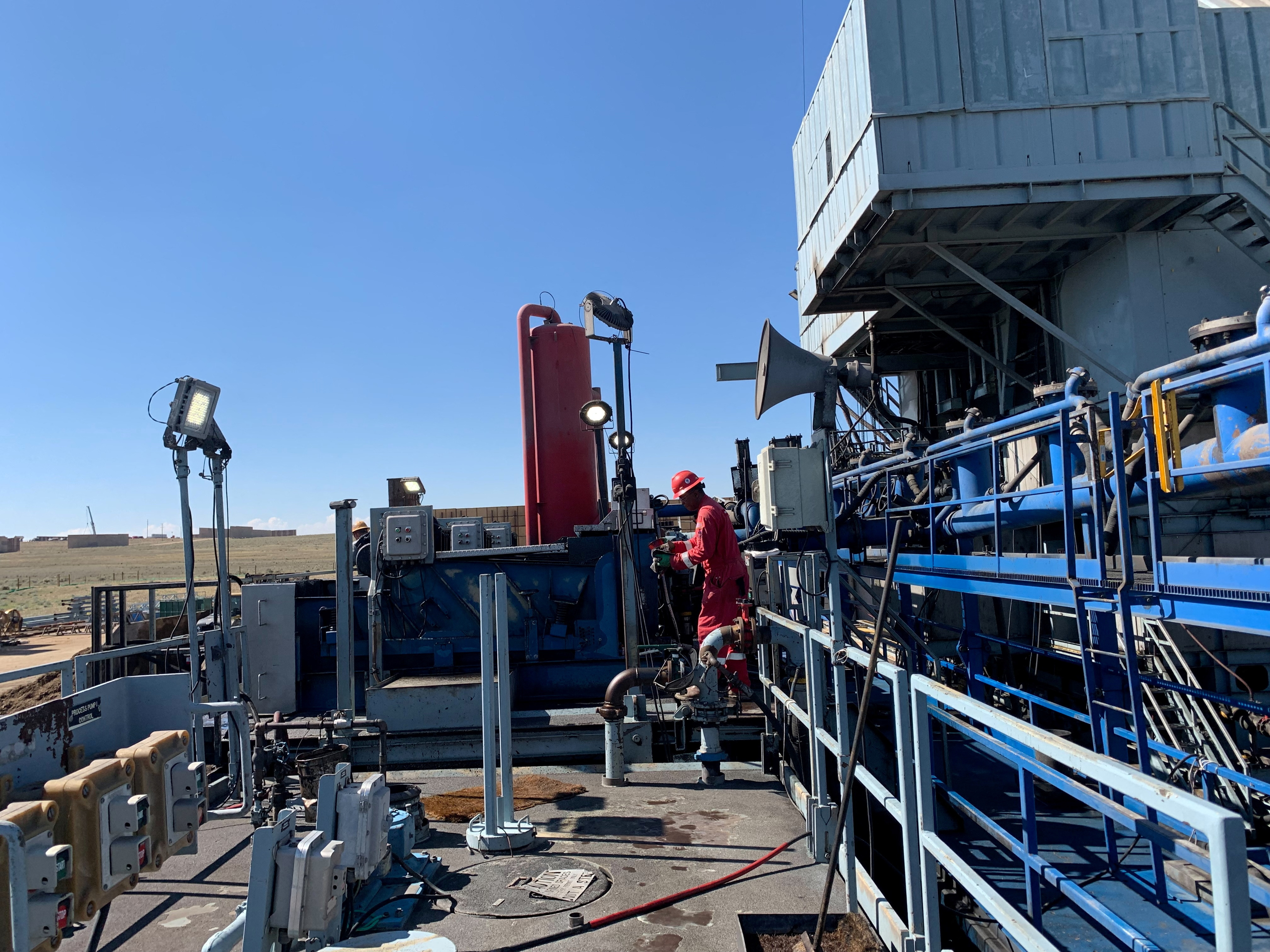Chevron (CVX.N) has agreed to buy Hess (HES.N) for $53 billion in stock to gain a bigger U.S. oil footprint and a stake in rival Exxon Mobil’s (XOM.N) massive Guyana discoveries, the latest in a series of blockbuster U.S. oil combinations.
The Chevron deal announced on Monday and a $60 billion acquisition by Exxon earlier this month will add years of oil and gas production to the two top U.S. producers’ portfolios, much of it from U.S. shale. And the deals will leave European oil rivals that had shifted their focus to renewable energy further behind in fossil fuels.
“This is great for energy security: It brings together two great American companies,” said Chevron CEO Michael Wirth, who has bulked up the company’s shale oil and gas holdings by acquiring U.S. rivals PDC Energy and Noble Energy.
The combination of Hess, PDC and Noble will bring Chevron’s total oil and gas output to about 3.7 million barrels per day (bpd). It will expand Chevron’s shale output by 40% to 1.3 million bpd, putting it neck and neck with Exxon’s projected shale output following its Pioneer Natural Resources (PXD.N) acquisition.
The combined company will expand Chevron’s oil production in less risky regions by adding to its output in the U.S. Gulf of Mexico and by bringing it into the Bakken shale in North Dakota.
The deal gives Chevron a 30% stake in the Exxon and CNOOC (0883.HK) Stabroek oil block in Guyana, which is expected to triple to more than 1.2 million bpd by 2027.
“This deal is all about the world-class Guyana asset, which is by far the crown jewel in the Hess portfolio,” wrote Capital One Securities analysts in a note.
Guyana has emerged as one of the world’s fastest growing oil province following more than 11 billion barrels of oil and gas discoveries since 2015.
CEO John Hess said the government of Guyana and Exxon would welcome Chevron’s entry into the country’s oil fields.
John Hess told Reuters he has been in talks with Wirth for about two years.
“We eventually talked about each other’s companies and the strategic fit,” Hess said.
The executives have known each other for many years, having previously been partners in U.S. Gulf of Mexico fields, and regularly discussed their business, Wirth told Reuters.
“This is a discussion that goes back a number of years over a variety of conversations in person, on the phone and over dinners,” Wirth said.
Goldman Sachs was the lead adviser to Hess while Morgan Stanley was the lead adviser to Chevron.
Shares sold off in midday trading on Monday with Chevron down 3.3% at $161.25 and Hess falling about 1% to $161.33. Both companies’ share track crude oil prices, which dropped on Monday.
$1 BLN IN COST SYNERGIES
Chevron offered 1.025 of its shares for each Hess share, or about $171 per share, implying a premium of about 4.9% to the stock’s last close. The total deal value is $60 billion, including debt.
The deal follows Exxon’s rapid-fire deals since July for top U.S. shale producer Pioneer and Denbury. Those $64-billion combined transactions put Exxon atop U.S. shale and cemented the firm’s nascent carbon storage business.
RBC analysts said they were surprised by the deal timing, and had expected Chevron to bide its time after Exxon’s mega deal.
The deal faces regulatory reviews, but Wirth said he is not expecting anti-trust concerns.
He said the combined companies expect to generate about $1 billion in cost synergies within a year of its closing.
Chevron said it would sell between $15 billion to $20 billion in assets and plans to spend between $19 billion and $21 billion a year on major projects after the deal closes.
Once the it closes around the first half of 2024, the Hess CEO will join Chevron’s board of directors.
“We’ve got too many CEOs per BOE (barrels of oil equivalent), so consolidation is natural,” said Wirth, adding the world could expect to see other oil deals.
CASH VS CLIMATE
The recent oil deals are a financial flex by U.S. oil and gas companies that have kept investing in fossil fuels as European rivals turned their attention to renewable fuels. Chevron and Exxon accumulated huge profits from strong energy prices and demand since Russia’s invasion of Ukraine.
Chevron said it tends to ramp up its share repurchases to the top of its $20 billion annual range, if oil prices remain high, and will increase its annual shareholder dividend by 8%.
Chevron will increase buybacks by $2.5 billion after the transaction, Wirth said.
“Shareholders of both companies will benefit from the stronger free cash flow that will more than double over the next five years,” Wirth said.
The consolidation, however, has drawn rebuke from environmentalists who see it undercutting climate goals.
“With this deal, Chevron is betting on the failure of the Paris Climate Agreement,” said Mark van Baal, the founder of Follow This, an activist shareholder group.
“Big Oil needs to change or Paris will fail,” he added, referring to 2015 Paris Agreement to limit global warming.


